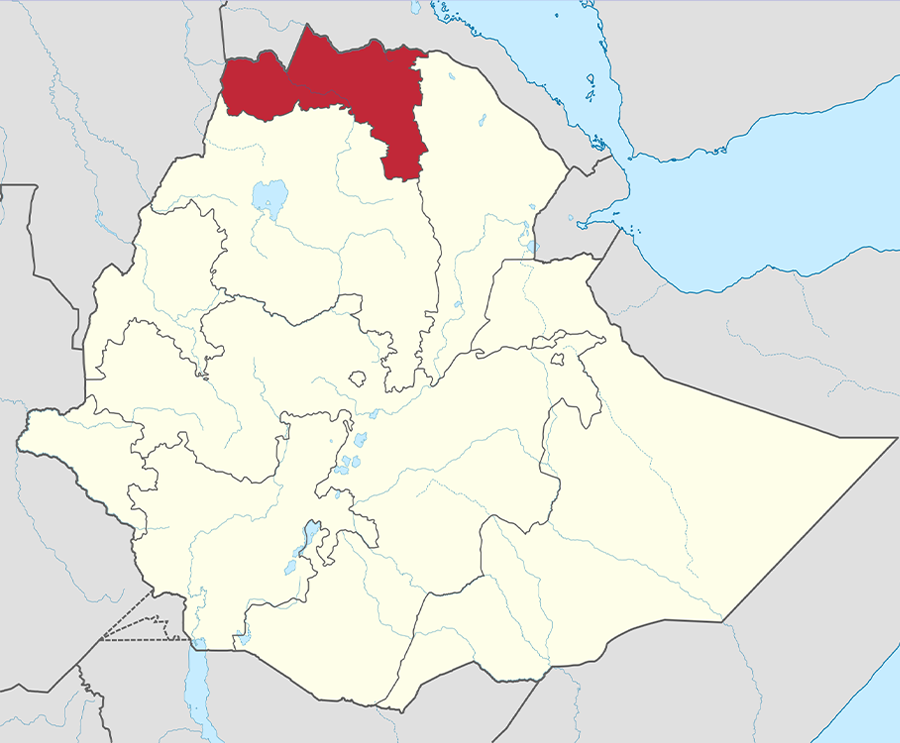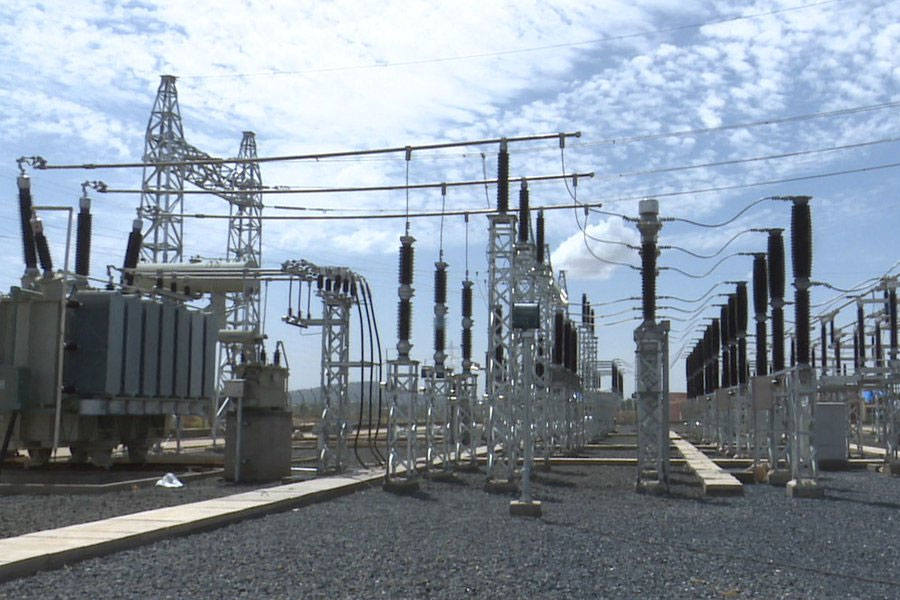
Viewpoints | Mar 12,2022
The more than quarter century old Alkyd Resin was privatised a decade ago, and it is the only company in Ethiopia that manufactures alkyd and emulsion resins, used in the production of oil and watercolour paints.
Employing 100 people, it used to produce 8,700tn of resins annually until three years ago, a capacity that has since dropped by a fifth. One of the major challenges facing manufacturers in the country, a shortage of raw materials as a result of a lack of foreign currency, has been cited as the cause of the decline.
It has been seven months since the company was able to open a letter of credit for foreign currency to import raw materials.
"The production was completely halted between August and November last year," says Mulugeta Debela, CEO of the company that saw a 46pc reveunue decline to 113 million Br between 2015 and 2018.
Business has not been good for small private sector players like Justino Pesta Vianelli, who owns and manages the four-decade-old Litho Printer, located close to Mesqel Square.
The company prints booklets, commercial invoices, receipts and posters. But as overhead costs increase, income has been shrinking.
“We have been used to working overtime on Saturdays and Sundays,” Justino says.
“Now I spend my time worrying about issuing a proforma invoice to clients, because the market price is fluctuating very fast.”
Tax payers wait for their turn to pay tax duties at the Kirkos wereda tax paying office.
In addition to the spike in prices of printing inputs, the monthly cost of the commercial space he rents from the Federal Housing Corporation was raised from 2,600 Br to 75,000 Br in January.
“I am currently considering making price adjustments on the services I provide,” he said, adding that he needs to continue paying his 36 employees.
It is not only foreign currency or expensive overhead that businesses are complaining about but also political unrest, poor supply chains, inflexible regulations, government bureaucracy and a shortage of skilled human power.
Given such underlying challenges, the business class and economists question whether the government’s attempt to improve domestic revenue mobilisation will pay off.
The government, in keeping with its past initiatives, plans to raise the tax to gross domestic product (GDP) ratio of the nation from its current level of 11pc, which is below Kenya’s 18pc.
The government had planned to raise this ratio by a percentage point every year, and the second edition of the Growth & Transformation Plan (GTP II) had envisioned it would reach 17.2pc by 2020.
The former Ethiopian Revenues & Customs Authority collected 134.2 billion Br in tax revenue in 2015. Last year, the Ministry of Revenue reported 235 billion Br in taxes, 40pc of which was from income and profit taxes.
The Ministry, which had planned to collect 142 billion Br in the eight months of the current fiscal year, achieved 76.5pc of its target. But revenues have continued to be a far cry from the fast-expanding GDP of the nation, which at a growth rate of 7.7pc has surpassed 80 billion dollars, according to government figures.
To fulfill its goal of covering 68pc of the 346.9 billion Br federal budget for this year, the government is undertaking initiatives and reforms to address challenges. This has involved stricter enforcement of the tax laws.
"In the last fiscal year, around 80 billion Br in taxes couldn't be collected, because 40pc of taxpayers didn't pay the dues that were expected of them," said Addisu Yirga, head of communications for the Ministry. “The major problems in the tax system of the country include tax evasion, tax assessment problems and transactions without receipts.”
Serious measures have started to be taken against businesses suspected of not fulfilling their duties. Last week, the Ministry identified 135 companies it said committed tax fraud valued at 14 billion Br.
One hundred and five employees of East Africa Trading House Plc, Misrak Plc, Sky Limit International Business Plc, Shendi Hotel, Rotterdam General Trading, Bazra Ferese Leather Export Plc and Assab Hotel were charged for not issuing receipts.
The individuals were caught carrying out transactions without receipts, according to Adaneche Abebe, minister of Revenues, who briefed members of the media last week.
But the effort to improve the nation’s tax revenue is not only coming in the form of stricter enforcement. Regulatory and monetary policies are as well being tweaked to help the private sector grow.
Prime Minister Abiy Ahmed (PhD) met with heads of various government institutions to review the “Doing Business” initiative, which is being carried out with the aim of improving the business environment. The Prime Minister noted that regulations are being revised to allow movable assets to be used as collateral in order to improve access to credit.
The National Bank of Ethiopia has issued directives to allow forex transactions inside industrial parks as well. It has allowed retention account holders to sell their foreign currency through negotiation, reversing the former trend of selling only via buying rates.
Fisehatsion Mengistu (Prof.), a former lecturer at the School of Business & Economics at Addis Abeba University, says that there remains a long way to go, adding that the strengthening of institutions is crucial.
“The designing of projects that create job opportunities, private sector commitment in paying taxes and an accountable and transparent government should all go hand in hand,” he says.
Yohannes Woldegebriel, a tax law expert, believes that there needs more to be done, adding that political stability is crucial.
“The government has to ensure peaceful mobility within the boundary of the country to improve the confidence of businesses and work harder on monetary policies to generate foreign currency,” he says.
Yohannes though doubts that the tax collection effort would go far given the precarious condition the nation is in.
Meanwhile, Mulugeta, his employees and the company, Alkyd Resin, await a better economic situation.
“It has become a nightmare, at least for the time being,” he says.
PUBLISHED ON
Mar 02,2019 [ VOL
19 , NO
983]

Viewpoints | Mar 12,2022

Commentaries | Jan 05,2019

Covid-19 | Aug 08,2020

Radar | Feb 02,2019

Radar | Apr 22,2022

Commentaries | Jul 03,2021

Radar | Jul 23,2022

Fortune News | Nov 04,2020

Fortune News | Sep 10,2021

News Analysis | Aug 28,2021

Dec 22 , 2024 . By TIZITA SHEWAFERAW
Charged with transforming colossal state-owned enterprises into modern and competitiv...

Aug 18 , 2024 . By AKSAH ITALO
Although predictable Yonas Zerihun's job in the ride-hailing service is not immune to...

Jul 28 , 2024 . By TIZITA SHEWAFERAW
Unhabitual, perhaps too many, Samuel Gebreyohannes, 38, used to occasionally enjoy a couple of beers at breakfast. However, he recently swit...

Jul 13 , 2024 . By AKSAH ITALO
Investors who rely on tractors, trucks, and field vehicles for commuting, transporting commodities, and f...

Jun 28 , 2025
Meseret Damtie, the assertive auditor general, has never been shy about naming names...

Jun 21 , 2025
A well-worn adage says, “Budget is not destiny, but it is direction.” Examining t...

Jun 14 , 2025
Yet again, the Horn of Africa is bracing for trouble. A region already frayed by wars...

Jun 7 , 2025
Few promises shine brighter in Addis Abeba than the pledge of a roof for every family...